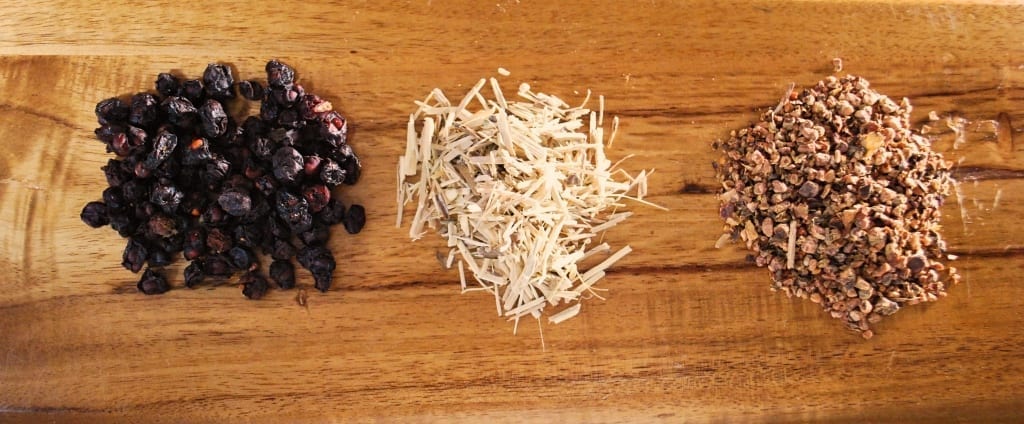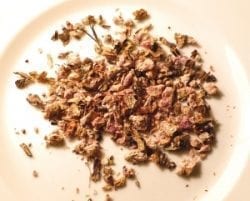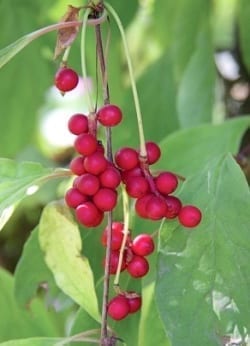
Three Adaptogens to Help with Stress
Fatigue — unfortunately — is universal in our culture. We all could use a little more energy, a little less stress, and a good mental boost. It’s wonderful to know amazing adaptogenic herbs are out there to aid us.
We at BumbleBar get excited about any plant-based, nourishing foods, so we’ve been thinking and talking about adaptogens lately, and the wonderfully natural way they support our bodies. Three, in particular, have been on our minds: Rhodiola rosea, schisandra berry, and eleuthero root. These three adaptogenic herbs have been the most extensively studied of the adaptogens and found to be both effective and safe.
What do adaptogens do?
Simply said, adaptogens help the body adapt to stress. They increase mental work capacity and attention. They are neuro-protective, anti-fatigue, anti-depressive, and stimulating for the central nervous system. Adaptogens stabilize a balance at the molecular level in the adrenal, pituitary, and hypothalamic glands, which are all parts of your body connected to stress response.
From evidence gathered in clinical trials, adaptogens were recently defined as herbs that decrease stress-induced impairments and increase attention and endurance while fatigued.
Rhodiola Rosea
Rhodiola is also known as Arctic root because it grows in cold climates in Europe, Asia, and North America. People in Russia and Scandinavian countries have used rhodiola to treat anxiety, fatigue, depression, headaches, and the flu for centuries.
Studies have shown it to enhance exercise performance. Other studies reveal rhodiola’s ability to inhibit cortisol, and as a result, improve cognitive function. People use it also to improve energy and memory.
Eleuthero Root
Otherwise known as Siberian ginseng, this root has been found in studies to ward off stress, fatigue, and depression. Although eleuthero is not technically ginseng, it works similarly to increase physical stamina, boost the immune system, and promote sexual health.
Schisandra Berry
Being a berry, this adaptogen has a bolder taste than the other two, which are roots. Translated from Chinese, schisandra means five-flavor. It was named such because it tastes salty, sour, sweet, bitter, and pungent all at once.
Siberian hunters in the Far East long used schisandra on lengthy hunting expeditions to fight off exhaustion and hunger, and improve night vision. In a recent study, schisandra showed the ability to increase mental performance and endurance in patients experiencing mild fatigue and weakness. The herb has also been used to enhance liver function and help gastrointestinal problems.
How do you consume adaptogens?
You can add powdered adaptogens to food, such as salad dressings, soups, and smoothies. You can swallow capsules, too. Be sure you buy from a trusted company, so you know you’re getting the good quality stuff.
You can concoct teas as well. Try this recipe for an adrenal support tea made with eleuthero, schisandra, holy basil, ashwagandha, and licorice root. And here are some instructions for making your own herbal tinctures using vodka.
Professionals advise to rotate the use of different herbs and take scheduled breaks from some of them for your body to utilize them optimally. Check with a physician or naturopath about recommended dosages and schedules, because it varies from person to person based on individual needs.


